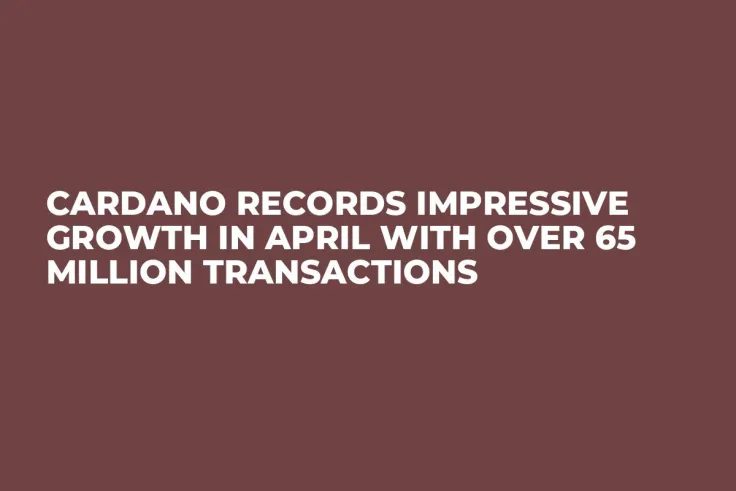
Disclaimer: The opinions expressed by our writers are their own and do not represent the views of U.Today. The financial and market information provided on U.Today is intended for informational purposes only. U.Today is not liable for any financial losses incurred while trading cryptocurrencies. Conduct your own research by contacting financial experts before making any investment decisions. We believe that all content is accurate as of the date of publication, but certain offers mentioned may no longer be available.
The Cardano Foundation has released encouraging on-chain data for April. According to the published graphic, there were 65.6 million total transactions in April, an increase of 2.49%.
In March, the number of wallets stood at 64 million, implying an increase of a million wallets within a month.
#Cardano On-chain Stats 🚀
— Cardano Foundation (@Cardano_CF) May 1, 2023
Let's keep growing #CardanoCommunity! 💪 pic.twitter.com/6Ct5iGW67k
At the same time, the overall number of wallets increased by 1.19% to 4.07 million, while the number of delegated wallets increased only slightly by 0.06% to 1.28 million.
Plutus scripts were up 3.53% throughout the specified period, reaching 5,419. There are currently 8.07 million native tokens in circulation, an increase of 2.63%.
Likewise, there were 72,133 more minting policies, an increase of 1.37%. Thirty percent of transaction types used smart contracts. Metadata-type transactions, which make up about 21% of all transaction categories, were not made using smart contracts. Forty-nine percent of transaction types were simple.
Fluid tokens move to Aiken
FluidTokens, a peer-to-peer lending protocol, will be moving to Aiken as its programming language for smart contract development. The project and the wider Cardano ecosystem are expected to greatly benefit from this choice.
Utilizing Aiken has the advantage of making smart contract scripts smaller, which lowers costs. On Cardano, smart contract fees are determined by the size of the script that implements the contract.
Aiken is intended to be simple and user-friendly, making it easier for developers to write and manage smart contracts without relying on external dependencies, in contrast to Plutus, the basic smart contract language of Cardano, which may be difficult to work with, especially for inexperienced developers.

 Dan Burgin
Dan Burgin Vladislav Sopov
Vladislav Sopov